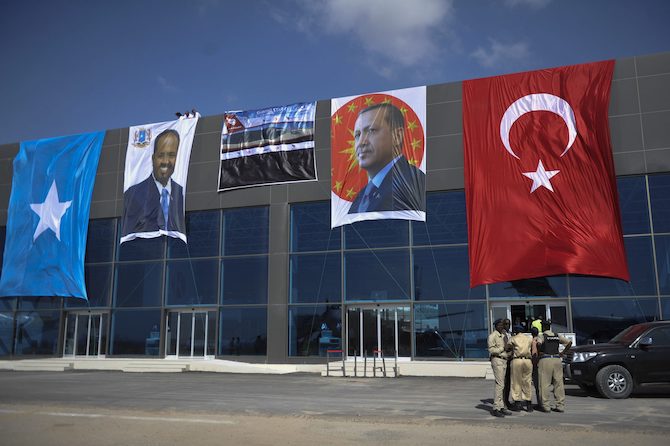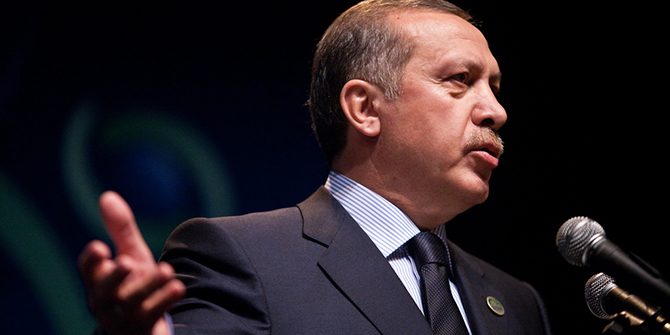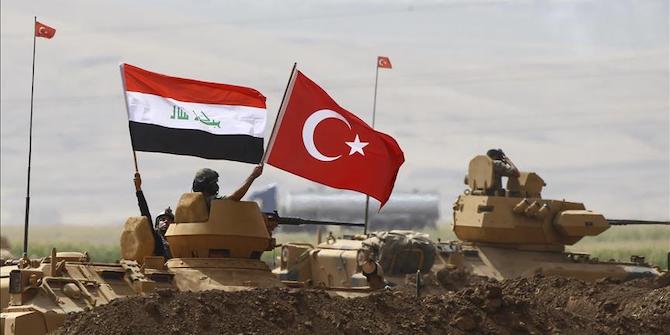by Spyros A. Sofos

A new ten-year agreement between Somalia and Turkey, signed on 8 February 2024, entrusts Ankara with the support of Somalia’s maritime security by building, modernising and training its naval forces and facilities and conducting joint air, land and sea operations around Somalia’s 3,333km coastline. The deal was complemented by a further agreement for the joint exploration and exploitation of hydrocarbons on ‘Somalia’s onshore and offshore blocks.’
This package proposes a 30 percent revenue share for Turkey from untapped marine resources in exchange for boosting Somalia’s maritime security. The context means it carries great historical significance and will have ongoing geopolitical ramifications. Its timing aligns closely with Ethiopia’s controversial memorandum with Somaliland, granting Addis Ababa access to the Red Sea and key facilities in exchange for recognising Somaliland’s sovereignty, a development which has alarmed Somalia. Additionally, the agreement paves the way for Turkey to establish a naval presence in this strategically vital region.
Longstanding Relationship
As noted by Somalia’s Minister of Defence, Abdulkadir Mohamed Nur, the current deal builds on Turkey’s longstanding involvement in the country. This dates to 2011 when, after a protracted civil war, Somali and AU Mission to Somalia (AMISOM) forces ousted the Islamist Al-Shabaab movement from Mogadishu. Then Turkish Prime Minister Erdoğan became the first senior European politician in years to visit the Somali capital, initiating significant humanitarian, development and peacebuilding efforts. Turkey signed multiple infrastructure deals, including projects for the Port of Mogadishu and the city’s international airport, with associated private companies securing additional contracts. Ankara also facilitated a shortlived cooperation agreement with Somaliland in 2014.
Turkey as an Ambitious Security Actor in the Horn
Much discussed is Turkey’s military engagement in Somalia, which began with a training agreement in 2010, predating its humanitarian diplomacy efforts. In September 2017, Camp TURKSOM was established in Mogadishu, serving as a dedicated military base for training units of the Somali National Army.
Expanding the military relationship to include maritime security aligns with Ankara’s ambition to be seen as Somalia’s key partner and a significant regional player. This move grants Turkey access to extensive coastal areas in the Horn, the broader Red Sea region, and vital maritime corridors linking it to the Indian Ocean.
It also reflects a broader shift in Turkey’s international engagement from multilateral diplomacy to bilateral agreements and, through bilateralism, a more autonomous foreign policy in the Horn, but also the Sahel and the Balkans. While Turkey has been active in the Horn through multilateral initiatives like its participation in the Combined Task Force 150, which combats piracy off Somalia’s coast, its focus now increasingly leans towards bilateral engagements.
The recent agreement with the Somali government allows Ankara to station maritime assets in a an area of geostrategic importance and thus enhance and upgrade its presence in the Horn outside such multilateral contexts.
Turkey’s ‘autonomous’ presence in the Horn had already borne fruit before the recent upgraded agreement elevating the nation’s symbolic stature to that of global and regional powers. More concretely, it increased Ankara’s influence within the Somali armed forces as the Turkish-trained Gorgor battalions have already developed their own esprit de corps, distinctiveness and affinity with Turkey. Ankara’s soft power efforts – spanning humanitarian, development, commercial, educational and religious initiatives – have cultivated a pro-Turkish orientation among Somali elites, aligning their interests with Turkey’s continued presence in the region.
Competitive Coexistence with the West and Regional Rivals
The agreement reflects Ankara’s strategy of ‘competitive coexistence’ with NATO and European partners. Turkey’s increasingly independent foreign and defence policy enables strategic alignments with Western allies, such as their joint commitment to Somalia’s statehood and sovereignty. However, it also entails divergences and tensions in other areas, as Turkish criticisms of Western imperialism and colonialism in Africa make plain.
Competitive symbiosis is also the name of the game in the case of Turkey’s relationship with the United Arab Emirates (UAE), a key competitor in regional flashpoints in Syria and Libya, and a major investor in farmland and agricultural production in Sudan and Ethiopia as a hedge against the spectre of food insecurity. The UAE, a long-time supporter of Somalia’s federal government, was unhappy to see Turkey gaining influence over Mogadishu at their expense. Although the UAE have signed a new, as yet unratified military agreement with Somalia, and continue to run the Somali port of Bosaso, having expressed an interest in managing the port of Kismayo, the turn of the Gulf country to breakaway Somaliland as a potential regional partner and its support of the Ethiopia-Somaliland deal have given Turkey a competitive advantage, facilitating the Mogadishu-Ankara deal which reduces even further the Emirati footprint in the country.
Somalia as the Blueprint of Turkey’s African Forays
Somalia’s fragile statehood represents an opportunity for Ankara to flesh out its own peacebuilding vision and to provide an entry point and a blueprint for a more active engagement with Africa. The maritime security agreement with Somalia adds a further dimension to Turkey’s relationship, not only with the Somali government, but also with Ethiopia, Eritrea, Sudan and, further afield, the UAE and Egypt, whose security is intertwined with developments in the region. Success in Somalia signals to other African countries that Turkey represents an alternative to the peacebuilding and development policies of Western powers, one that claims to lack the colonial mentality of its European competitors. The recent maritime security deal makes Ankara more visible and allows it to build on existing defence and military cooperation agreements (with Niger and Senegal in 2020, and Togo in 2021) and the active presence of Turkey’s soft power institutions in West Africa and the Sahel.






